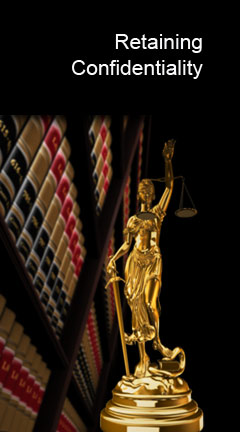Aviso de archivo
Esta es una página de archivo que ya no se actualiza. Puede contener información desactualizada y es posible que los enlaces ya no funcionen como se pretendía originalmente.
Home | Glossary | Resources | Help | Course Map
There are certain actions the expert can take to help maintain and uphold the rules of confidentiality or privilege:
- Limit the distribution of written communications.
- Hold written communications to an absolute minimum.
- Mark written communications "Confidential" or "Attorney Work Product," if that is really the case.
- Attempt to keep the attorney involved in the communication so that it is indeed the attorney's thought process and work product that are being discussed.
- Have the attorney give the expert summaries of the data rather than the basic data that would otherwise be confidential. That may make the item an attorney work product.
- Segregate confidential and privileged communications in the expert's case file rather than merging them with his general materials.
- Make sure the expert's communication with the attorney responds to the attorney's request for information.
- Protect trade secrets or patent information as confidential.
- Obtain a protective order to suppress the information and make it unavailable for any purpose other than the subject litigation, if the information involves competitive information.
- Attempt to show that production of documents or other items is too burdensome or constitutes an act of harassment.
Facts and information should not be given to an expert unless there is some specific reason for doing so. Always consider how a skillful cross-examiner might use a piece of information.
Additional Online Courses
- What Every First Responding Officer Should Know About DNA Evidence
- Collecting DNA Evidence at Property Crime Scenes
- DNA – A Prosecutor’s Practice Notebook
- Crime Scene and DNA Basics
- Laboratory Safety Programs
- DNA Amplification
- Population Genetics and Statistics
- Non-STR DNA Markers: SNPs, Y-STRs, LCN and mtDNA
- Firearms Examiner Training
- Forensic DNA Education for Law Enforcement Decisionmakers
- What Every Investigator and Evidence Technician Should Know About DNA Evidence
- Principles of Forensic DNA for Officers of the Court
- Law 101: Legal Guide for the Forensic Expert
- Laboratory Orientation and Testing of Body Fluids and Tissues
- DNA Extraction and Quantitation
- STR Data Analysis and Interpretation
- Communication Skills, Report Writing, and Courtroom Testimony
- Español for Law Enforcement
- Amplified DNA Product Separation for Forensic Analysts


